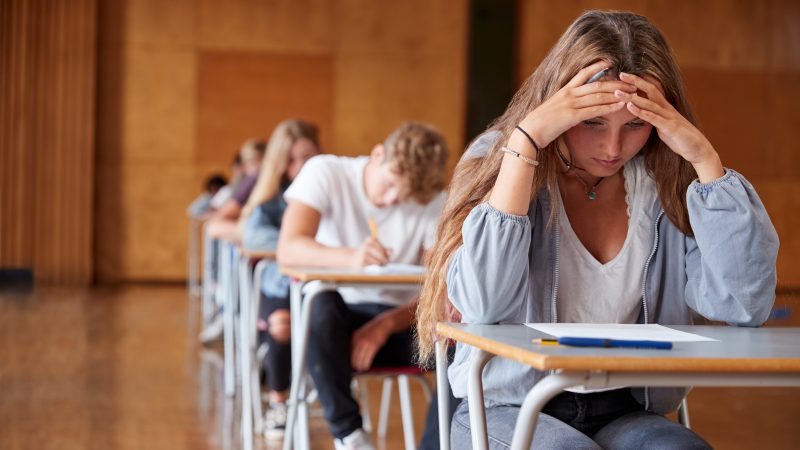
Kate Green has warned that ministers must “learn from their mistakes” and demanded that the government set out a plan for assessments in 2022 by the time pupils return at the start of the school year on September 1st.
Speaking at an Edge Foundation event on reforming assessments on Tuesday, the Shadow Education Secretary will urge the government to work with exam boards and the education sector to deliver a fair system for pupils next summer.
Her intervention follows analysis of Department for Education school attendance figures, which shows that the average Year Ten pupil in England has missed one in four days of face-to-face GCSE or BTEC teaching in this academic year.
Green said: “The Conservatives’ poor planning and preparation has created a second year of exam chaos. Uncertainty just piles pressure on pupils and teachers, so the longer ministers dither and delay, the harder it will be to set a level playing field and ensure every pupil gets fair grades.”
Gavin Williamson told a parliamentary committee last month that exams in 2022 and subsequent years may be subject to “adjustments and mitigations”, as a result of Covid disruption and to ensure fairness, but he provided no further details.
The Education Secretary told MPs that he would “far prefer to see children sitting exams” in the next academic year but added that “we very much recognise that we can’t predict what we are going to be facing over the coming years”.
Williamson suggested that some of the measures that would have been used for this year’s exams, before they were cancelled, could be applied. They included slimming down the subject areas to be tested and pushing back the dates of exams.
During the first wave of the pandemic, the UK government announced that students would receive grades standardised by an algorithm designed by Ofqual instead of sitting in-person tests.
The regulator took teacher-estimated grades and issued results to pupils after moderation based on historical data for each centre or school, previous levels of attainment in cohorts and the expected national distribution of grades.
But a public outcry followed the release of A-Level results, as two in five students across the country saw their teacher-predicted grade moderated down, and the government performed what Labour called a “screeching U-turn“.
After significant pressure, the Education Secretary announced that the algorithm would be scrapped and that the government would accept the initial teacher predictions as the final grade award for students.
Green is also expected to demand on Tuesday that the government set out a comprehensive recovery plan to level the playing field for the pupils who have missed the most learning, after school leaders rejected Williamson’s catch-up plan.
As part of the plan outlined by the Education Secretary, the government has committed £1.4bn, with £1bn for six million, 15-hour tutoring courses for disadvantaged school children and an expansion of the 16-19 tuition fund.
More than two-thirds of school leaders polled by the National Association of Head Teachers (NAHT) said they supported using tutors for catch-up, but that it should not be delivered through the government’s national tutoring programme (NTP).
According to the NAHT research, 70% of the more than 700 headteachers in England surveyed thought that small group or one-to-one tutorials are the best use of government catch-up funding as long as they are run by the schools themselves.
NAHT general secretary Paul Whiteman said: “The NTP is a great idea in principle and could have a really positive impact, but the current bureaucracy surrounding it, and the difficulties schools are facing accessing tutors means that it is starting to feel like yet another hoop to jump through and a pressure rather than a help.”




More from LabourList
‘Factionalism at the top is weakening Labour – and handing a gift to Reform’
‘Europe must stand strong on its own as US security guarantees grow conditional’
‘Tackling poverty should be the legacy of Keir Starmer’s government’